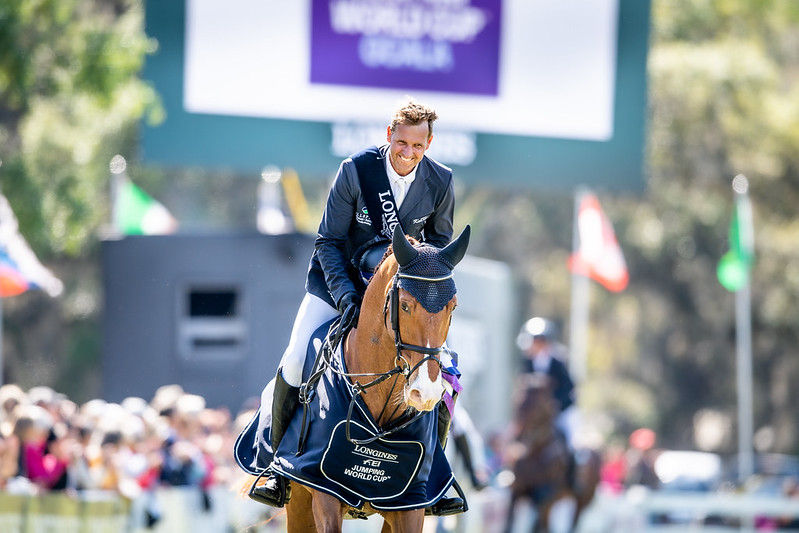Tokyo Takeaways Presented by Haygain — Greatest Memories of Tokyo
- Catie Staszak

- Aug 8, 2021
- 4 min read
Updated: Aug 14, 2021
In this series from StreamHorseTV, Catie Staszak and StreamHorseTV Director of Content Natalie Mayrath provide discussion, insight and commentary around all the action happening on the ground during the Tokyo Olympic Equestrian Competitions.
We’ve concluded equestrian competition at the Tokyo Olympics, and medals were awarded in the final element — Team Show-Jumping. Staszak weighs in on the strategical switch by Team USA, the country who dazzled, format changes impacting the standings, and our favorite Tokyo Takeaway memories of these games.
Topics Discussed:
- Strategic Switch by Team USA
- Sweden Sets Themselves Apart
- New Format
- Equestrians Etched Into History
Watch Tokyo Takeaways Episode #6 Presented by Haygain
Sweden Sets Themselves Apart
Team Show Jumping gold was decided in a scintillating final jump-off between Sweden and USA that saw no rails dropped, but in the end, Sweden’s performance outdid everyone, bolstered by Peder Fredricson’s magnificent anchor round on All In, which secured their place atop the gold medal podium.
Team USA bounced back gamely after completely missing the individual final. Laura Kraut on Baloutinue, Olympic rookie Jessica Springsteen on Don Juan van de Donkhoeve, and McLain Ward on Contagious logged impressive rounds when it counted, but Sweden jumped faster, clinching their first gold medal in this event since 1924.
Show Jumping saw a dizzying scramble of substitutions before the team competition began, notably Ward going in for the USA after the five-time Olympian had been shockingly named as an alternate during the first horse inspection. He and Contagious swapped in for Kent Farrington on Gazelle. U.S. Chef d’Equipe Robert Ridland claimed “that has always been the plan,” citing tremendous internal team spirit along the way.
“It was great to be in the battle. Sweden’s win wasn’t unexpected here, but they took it to another level," Ward said. "We would have had to have an incredible day to beat them. I think we pushed them right to the limit, and in competition when you push them to that limit and they still win, you’ve got to be proud of the fight.”
Ward, who had become increasingly aware of Contagious’ potential at this level, can now be sure this horse deserves to be here. Contagious was just one horse out of many who benefitted from steamed hay, provided by Haygain. Contagious overcame both a physical injury and respiratory issues to make it to the Olympics. Haygain outfitted Team USA with hay steamers in both Aachen and Tokyo, and helped several other riders and federations arrange for steamed hay for their horses while competing at the Tokyo Olympics.
Kraut expressed afterward that with the way Sweden had been performing all week, “If you’re going to lose, you’re going to lose to them, so we can live with that.”
Sweden’s two “shoeless, winged” horses turned in stalwart performances, remarkably while jumping more rounds than the USA horses had jumped, including a fully fresh Contagious who did not compete in the individual qualifier.
It was repeat individual silver, as well as the team gold, for Fredricson on the classy and spectacular All In, who jumped all the way through the Rio Olympics without a rail, and came out of the Tokyo Olympics with only a single rail down. Staszak and StreamHorseTV’s Natalie Mayrath agreed that watching All In make it through almost two entire Olympics without a rail was enthralling.
“I’m all in for All In,” Mayrath said.
“No horse deserves a gold medal more,” Staszak added, reminding us how he narrowly missed individual gold in both Rio and Tokyo.
While All In did knock a rail down at the final jump of the team final here, he then jumped clear in the jump-off, while his equine counterpart King Edward, ridden by Henrik von Eckermann, assumed the position of the only horse at the Tokyo Games to jump clear all the way through.
The Swedish team of Fredricson, Eckermann, and Malin Baryard-Johnsson riding Indiana, did exactly what they had to do, and maybe a bit more. “They were so poised,” Mayrath said, “and they seemed so humble.”
At press time, Sweden had nine medals in the entire medal count. One of those is the silver they captured after knocking off Team USA in soccer. Two others belong to their show jumpers: Fredricson for individual silver, and the team silver.
New Format, Cutthroat Competition
Format changes ensured that errors would cost a team dearly, and without a fourth dropped score, only the teams who could pull together flawless rounds made it to the top of the leaderboard. Great Britain saw its first two contenders disappoint, so they withdrew their third combination, individual gold medalists Ben Maher and Explosion, electing to save the horse for another day. France had snuck up the leaderboard to defend their Rio gold, only to have Penelope Leprovost shockingly get eliminated for uncharacteristic refusals. With France out of medal contention, USA and Sweden were suddenly jumping for gold.
Despite solid team efforts, Staszak said that across the equestrian genres, the format changes most affected show jumping. Watch the full episode to hear more about Staszak’s thoughts on the impact of format changes—and find out the entire list of records etched into the history books by equestrians during the Tokyo Games.
Watch all of the Tokyo Takeaways episodes here. We congratulate all of the equestrian horse and human athletes who competed in the Tokyo Games!
READ, WATCH & LISTEN MORE:




Comments